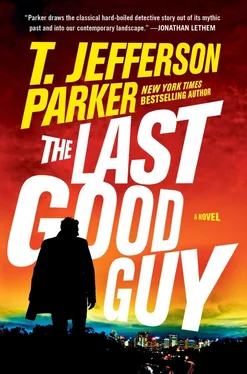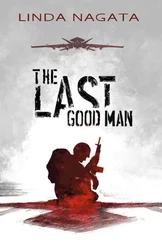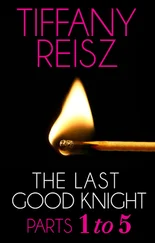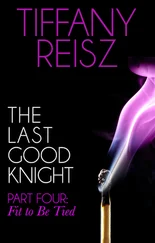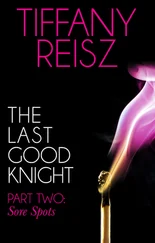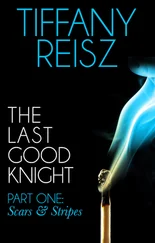Arranged neatly on the table in front of him, on either side of the long glove box, I saw a flotilla of smaller box-shaped meters with read-out windows — some plugged in to surge protectors and others apparently battery-powered, some with handles and some without; handheld devices the size of large smartphones; handheld devices shaped like a cross between a pistol and a caulking gun; an assortment of what appeared to be tiny loudspeakers in miniature cabinets, no bigger than travel alarm clocks. Plenty of wires, narrow-gauge cable, and the flexible coiled extension cord once found on telephones.
Electrical diagnostic and measuring equipment? Maybe. Hazmat — chemical or biological? Maybe. But what of the pistol — caulking gun contraptions and the small loudspeakers attached to some of the meters? My next thought was radioactive devices. Not voltmeters but radiation dosimeters and radiometers? Not oscilloscopes but radiation detectors?
Burt barreled in, holding up his phone for me to see.
“They’re working with radioactive material,” he said. “The fume hood.”
At Burt’s prompt I saw it, suspended from the ceiling over the work table, just visible at the top of Clevenger’s laptop screen. For drawing up radioactive particles or gases suspended in the air, invisible, odorless, and potentially lethal. In my attention to Connor Donald, and the puzzling glove box and various gauges and meters, I hadn’t registered it.
Wasp-cam one came online, Eric Glassen crossing the dusty farm yard. Camera three picked him up as he entered the hangar and worked his way through the vehicles toward the lab. He moved quickly and lightly, like the athlete he had been in high school. A cornerback, requiring speed, strength, and the ability to hit an opponent — often a very strong running back — at high velocity. With his thick neck and pit-bull ears, Eric was a formidable-looking man. I remembered his brief and disappointing UFC career. And his odd choice of UC Riverside undergraduate degrees in mechanical engineering and history.
Which reminded me of Connor Donald’s contradictory curriculum vitae: an athlete-scholar who’d renounced a full football ride to study physics and philosophy at Penn State. Summa cum laude. Followed by his Christian mission in Somalia, where he’d witnessed the slaughter of nine people by Somali rebels. And his subsequent role as a founding member of SNR Security, a company with a proven record of hostility to blacks and Muslims.
So: football; university degrees in physics, mechanical engineering, history, and philosophy; martial arts fighting; and a Christian mission ending in blood, all conspiring to lead these two young men to a secret laboratory outside a small desert town in the Imperial Valley, to work with apparently highly radioactive materials in order to accomplish... what? I tried to make some sense of it, find a through-line, discern the narrative through the facts. I tried to put all that into my pipe and smoke it — as Grandpa Dick likes to say. But I couldn’t even get it lit.
“What are the pistol-shaped devices?” I asked.
“Dosimeters for measuring penetrating radiation,” said Burt. “X-rays, gamma rays, and neutrons. The smaller handheld devices are similar. I don’t know why they’d have so many. Triple coverage. Must be handling some very lively stuff. The larger box-shaped units with the handles are high-end Geiger-Müller detectors.”
“How do you know all this?” I asked.
“I took some nuclear remediation training in Olkiluoto, Finland, one summer. All that equipment around the glove box is standard issue in radioactive workplaces.”
“Why the loudspeakers?”
“Audio warning,” said Burt. “So if your eyes suddenly explode, your skin melts over them, and your brain ruptures, you can still hear the warning. Clever.”
“What do you think they’re up to?”
Burt smiled, a crooked thing containing something other than amusement. “No good at all, Roland.”
Glassen went into the lab, slapped Donald’s shoulder, and swept around the big metal table. Donald joined him, and they each pulled on a pair of tight blue lab gloves, then another. Next they shrugged into white lab coats, and each man settled a white hard hat onto his head and swung up the clear protective shield. They came back to the front of the room, talking and smiling.
Then Connor Donald picked his way back through the vehicles, on his way to the roll-up door of the hangar. He touched something on the wall and the corrugated metal curtain closed on the scene within.
Burt and I stared at Clevenger’s screen in silence, as if we could will Donald to open the door again so we could watch them work.
Work done in white coats and face shields and two pairs of protective gloves. Using their clear, coffin-shaped glove box with the fume vent sucking up any loose radiation. In their hidden lab on a date farm in an infernal desert at the southern tip of California.
“The wooden crates in the freezers would fit in the glove box,” I said.
My phone buzzed and Mike Lark’s name waited on the screen.
“What the hell are they doing out there?” he said.
“I was just wondering myself.”
“Where exactly is that place?” he asked, his voice fast and sharp.
Burt gave me a doubtful look as I gave Lark precise directions to Paradise Date Farm.
“Have you saved the previous video?” asked Lark.
“All of it.”
“Send it over, now. Use my secure line in the field office.”
He gave me the number and I got to work on my desktop.
“What in hell are they doing out there?” Lark asked again.
“You’re the expert, Mike.”
“You said something about crates in freezers. Describe them again.”
When I was finished, Lark was quiet. I could hear the tapping sound of his fingers on a keyboard. Burt sat on the couch, head down, twiddling his thumbs.
“No labels or serial numbers on the crates?” asked Lark.
“Nothing.”
“You said metal bands. Okay — how many per crate, what size and color?”
I described them in detail. Tap-tap of Lark’s fast fingers on his keyboard. I looked at Clevenger’s laptop screen, but the wasp-cams were resting.
“All right,” said Lark. “After you told me that SNR did that number on you, I ran the company through our federal interfaces and dug into the structure of the company. You were right — it’s privately held. Marie Knippermeir has controlling interest and sixty percent ownership. Alfred Battle’s dear, breakfast-meat-wealthy, possibly addled wife. Battle’s name appears nowhere in the incorporation. Although his fine humanitarian views on race and brotherhood show through in SNR’s behavior.”
I pictured Reggie Atlas standing under the grand magnolia tree in front of his Rancho Santa Fe spread, smoking a cigarette while Alfred Battle retrieved the briefcase from the gleaming black Mercedes parked in Reggie’s garage. An apparently very valuable briefcase.
“Is SNR profitable?” I asked.
“Very,” said Lark. “No debt. They’ve got eight regional offices and three hundred — plus accounts in fifty states. From plant protection to executive security to mom-and-pop residential patrols. Agriculture to aerospace. School campuses, retail, and churches. Over six hundred employees. SNR invests in and donates heavily to needy Battle-approved organizations.”
“Such as Paradise Date Farm.”
“There’s quite a list,” Lark said. “Some of my personal favorites are the Fraternal Order of White Knights, Right Proud, the Christian Century Crusade, and Don’t Tread. Most of them are American, but some European groups, too — Lemborg Jugend and C14. It’s not illegal.”
Legal or not, I wondered at the riches amassed by Reggie Atlas’s Four Wheels for Jesus Ministry — cash donations to his church and subscriptions to his podcasts and streaming videos — some of it contributed to SNR, laundered into profit, then sent back out again to Alfred Battle’s hate organizations. Wondered that Reggie could afford such largesse to people like Alfred Battle, on top of joining Marie Knippermeir in the purchase of the House of Fallen Angels on the Bay of Dreams on the Baja Riviera. The generosity of the faithful has always impressed me. The rank-and-file believers. The five-or-ten-dollars-on-Sunday-morning people. Sitting in their pews, or in front of their devices, hearing the word, feeling the word, willing to pay for the word.
Читать дальше
